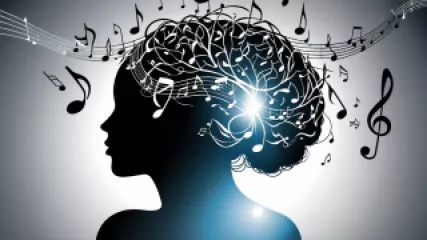Exploring the Psychology of Music: A Step-by-Step Guide
Music has a powerful impact on our emotions and can be a source of stress relief, mood enhancement, and mental wellness. The psychology of music delves into the intricate relationship between music and the human mind, exploring how different musical elements can evoke specific emotional responses and influence our mental state.
The Power of Music and Emotions
Have you ever listened to a melancholic melody and felt yourself becoming introspective or even shedding a tear? Or perhaps you've turned to an upbeat, energetic tune to lift your spirits and boost your motivation. These experiences highlight the profound connection between music and emotions.
Research has shown that music has the ability to elicit a wide range of emotional responses. Certain harmonies, rhythms, and lyrics can evoke feelings of joy, sadness, nostalgia, anger, and more. This emotional impact is not only subjective but also influenced by cultural and personal factors.
When we listen to music, our brains process the auditory information and engage with various neural networks associated with emotion and reward. This interaction can lead to the release of neurotransmitters like dopamine, which are responsible for feelings of pleasure and happiness.
Music Therapy: Harnessing the Power of Music
Music therapy is a field that capitalizes on the psychological effects of music to promote healing and improve overall well-being. It involves the use of music in therapeutic sessions to address various emotional, cognitive, and physical needs.
During music therapy sessions, a trained therapist works with individuals or groups to explore their emotions, express themselves creatively through music, and develop coping mechanisms. This approach has been found to be particularly effective in helping individuals manage stress, reduce anxiety and depression, and enhance self-awareness.
One of the key aspects of music therapy is the ability of music to serve as a non-verbal form of communication. Sometimes, words may fail to capture the depth of our emotions or thoughts. Music provides an alternative channel for expression, allowing individuals to connect with their inner selves and communicate their experiences.
How Music Influences Mood
Have you ever noticed how certain songs can instantly transport you back in time, evoking vivid memories and associated emotions? This phenomenon is known as the "mood congruence effect," which suggests that music can trigger memories and emotions that are congruent with the mood expressed in the music itself.
For example, listening to a happy, upbeat song can improve your mood and make you feel more positive. On the other hand, if you're feeling down, listening to sad music might intensify those feelings. This connection between music and mood can be a powerful tool for self-regulation and emotional well-being.
Music also has the ability to regulate physiological responses and induce relaxation. Slow, soothing melodies can slow down our heart rate and breathing, reducing feelings of stress and anxiety. This is why many people turn to calming music during meditation or before bedtime to help them unwind and promote better sleep.
The Therapeutic Benefits of Music
Beyond its impact on emotions and mood, music therapy has been scientifically proven to offer a range of therapeutic benefits. Let's explore some of these benefits:
1. Stress Relief:
Listening to music can be a powerful stress management tool. Studies have shown that soothing music can lower cortisol levels (the stress hormone) and reduce perceived stress levels. Whether it's classical music, nature sounds, or your favorite tunes, finding moments to immerse yourself in music can help alleviate stress and promote relaxation.
2. Cognitive Enhancement:
Music has also been found to enhance cognitive functioning. Playing a musical instrument, for instance, requires coordination, concentration, and memory recall. Engaging in regular music practice can improve these cognitive skills and even have positive effects on other areas of life, such as academic performance.
3. Emotional Expression:
Music provides a safe outlet for emotional expression. When words fail, music can help individuals express and process complex emotions. Whether through listening or creating music, people can find solace, validation, and understanding in the melodies and lyrics that resonate with their experiences.
4. Social Connection:
Music has the power to bring people together, fostering social connections and a sense of belonging. Singing in a choir, playing in a band, or attending live concerts allows individuals to share a collective musical experience, promoting bonding and emotional support.
5. Pain Management:
Research has shown that listening to music can reduce pain perception and improve pain tolerance. The distraction provided by music, along with the release of endorphins, can alleviate physical discomfort and enhance overall well-being.
Conclusion
The psychology of music is a fascinating field that explores the profound impact music has on our emotions, mood, and mental well-being. From stress relief and emotional expression to cognitive enhancement and social connection, music therapy harnesses the power of music to promote healing and enhance overall quality of life.
Next time you find yourself in need of a mood boost or a moment of relaxation, consider turning to your favorite tunes. Let the melodies guide your emotions, soothe your soul, and embark on a journey of self-discovery through the psychology of music.






